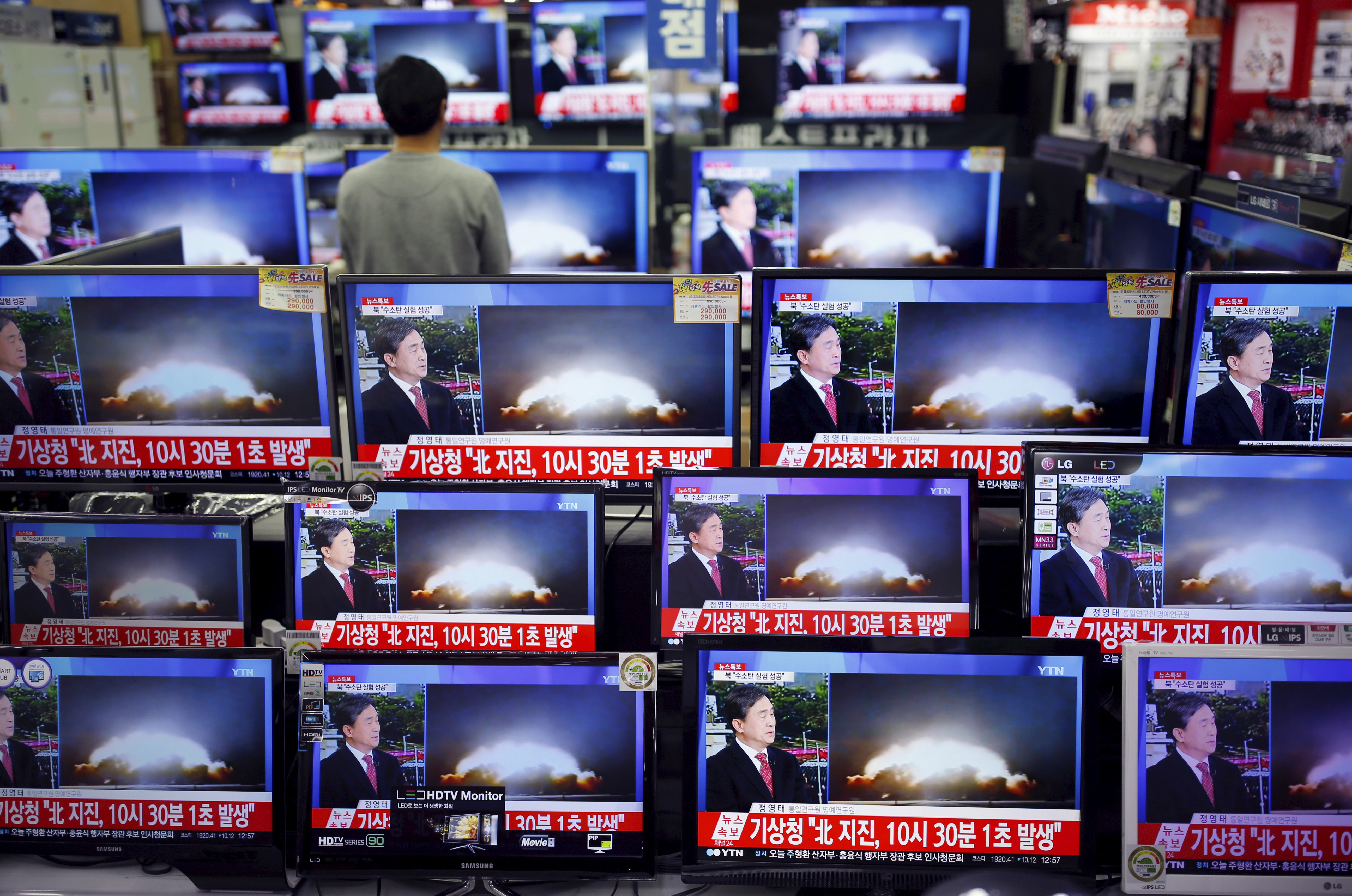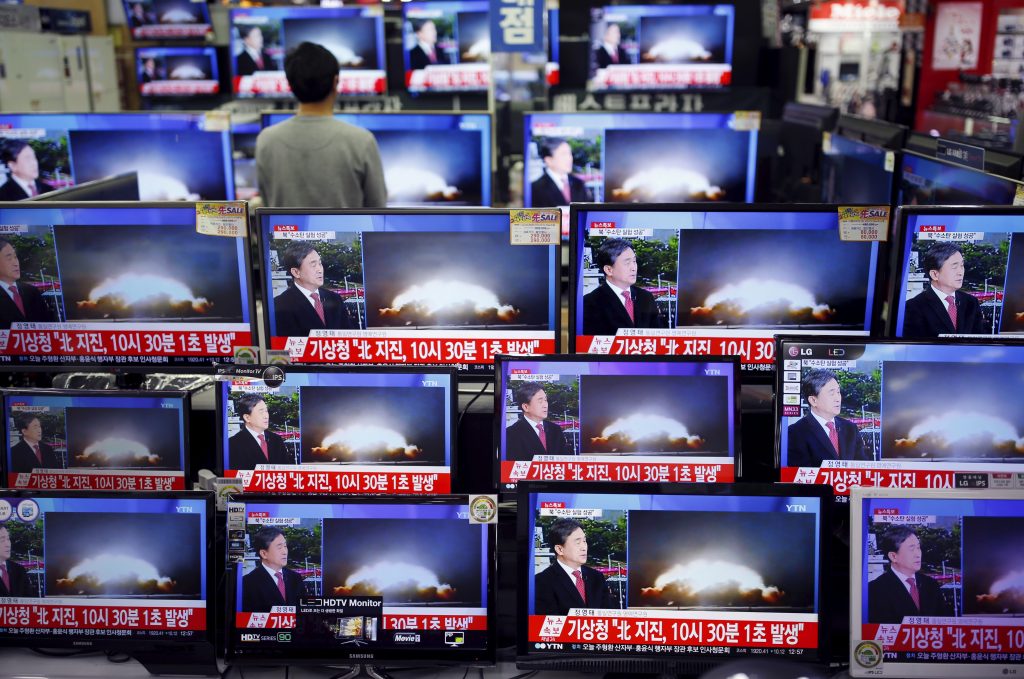 North Korea’s fourth nuclear test may have set in motion forces that will lead to painful new UN sanctions, greater levels of isolation, and impact its ties with China and South Korea while altering security dynamics in East Asia.
North Korea’s fourth nuclear test may have set in motion forces that will lead to painful new UN sanctions, greater levels of isolation, and impact its ties with China and South Korea while altering security dynamics in East Asia.
Nuclear experts doubt Pyongyang’s claim that it tested a hydrogen weapon on January 6. Analysis of seismic data in the coming weeks will provide more precise assessments, but the test does not appear to have the large yield associated with a fission-fusion weapon.
Regardless of what device was detonated, North Korea’s defiant action is certain to have global and regional repercussions. The test violated three UN Security Council resolutions, which had led to economic sanctions on North Korea. But compared to the more comprehensive sanctions that were imposed on Iran in response to its nuclear program, these sanctions are modest: an arms embargo, freezing of assets, bans on state entities and individuals involved in North Korea’s missile and nuclear programs.
An emergency meeting of the UN Security Council on January 6 will undoubtedly result in ringing condemnations and perhaps even a new round of sanctions on North Korea. South Korea, Japan, the Europeans, and even China have already issued loud denunciations of the nuclear test, echoing the Obama administration. The key question is how far China and Russia are willing to go in sanctioning North Korea. In the case of Iran, draconian financial sanctions were imposed: Iran was banned from using SWIFT (Society for Worldwide Interbank Financial Telecommunication), taking away its ability to conduct international financial transactions.
The SWIFT sanctions were a huge blow to the Iranian economy. At a time when Pyongyang’s young leader, 33-year-old Kim Jong-un, is promising to improve North Korea’s economy, similar sanctions could prove lethal.
The nuclear test will almost certainly impact Pyongyang’s ties to China and South Korea. The test was a kick in the teeth to Beijing, which in recent months has been trying to repair frayed ties with Pyongyang.
Chinese President Xi Jinping sent Liu Yunshan, the fifth-ranking offical in China’s Politburo Standing Committee, to attend the 70th anniversary celebrations of the Korean Workers’ Party in Pyongyang in October of 2015. Liu very publicly schmoozed with Kim for four days. Well-placed Chinese sources tell me that they were concerned that their traditional ties with North Korea’s ruling elite and the military had frayed and they wanted to bolster ties. There have even been rumours that Kim might be invited to Beijing for a summit.
But Beijing will see the nuclear test as a humiliation. Moreover, the test will set back Chinese interests in a variety of ways. It will spur new US-South Korea-Japan security cooperation. It will also strengthen support for ballistic missile defenses and spur trilateral cooperation in the sphere.
Seoul has been debating whether to buy the US THAAD missile defense system. This recent provocation from Pyongyang will likely reshape that debate. In addition, there have been new efforts at North-South dialogue and increased cooperation between the two Koreas. The nuclear test will almost certainly undermine those efforts.
Finally, Kim has based his regime on the promise of improving North Korea’s economy. He has launched new policies, liberalized agriculture, and announced more than seventeen special export zones to attract foreign investment. The political risk factor and the absence of any private property rights or commercial arbitration has meant precious few takers. In the aftermath of the nuclear test and tougher sanctions it is unlikely that foreign investors would touch North Korea with a ten-foot pole.
How this new opprobrium and isolation will impact Kim’s regime over the coming year or two will be the big question the world will be watching closely. Clearly 2016 will be the Year of Living Dangerously in Northeast Asia.
Robert A. Manning is a Resident Senior Fellow in the Atlantic Council’s Brent Scowcroft Center on International Security.
Image: A sales assistant in Seoul, South Korea, watches TV sets broadcasting a news report on North Korea’s nuclear test on January 6. North Korea claimed that is had successfully tested a hydrogen bomb. (Reuters/Kim Hong-J)

